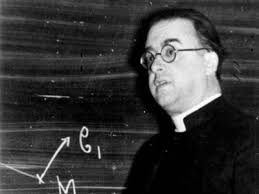Public Lecture about Lemaître on Oct 31 at University of Chicago

Georges Lemaître—a Belgian priest and cosmologist—proposed what came to be known as the “Big Bang” model of the origin of the cosmos. What is less well known is that Lemaître discovered and published Hubble’s law—the first observational basis for the expansion of the universe—in 1927—well before Edwin Hubble did. Lemaître also treated Einstein’s cosmological constant as a vacuum energy, in 1933, foreshadowing work done a half-century later. Lemaître is less well known as a pioneering cosmologist than as a chimeric figure with both a scientific and religious career. Thus he has been treated by historians differently from other scientists. In this talk Lunine will argue that renaming the “Hubble law” the “Hubble-Lemaître law” (resolution B4 2018 of the International Astronomical Union) is a reasonable solution to the dilemma posed by history’s treatment of the Belgian cosmologist.
Jonathan I. Lunine is David C. Duncan Professor in the Physical Sciences at Cornell University and Director of the Cornell Center for Astrophysics and Planetary Science. He earned his PhD in planetary science from Caltech in 1985. Lunine researches astrophysics, planetary science, and astrobiology. He is a member of the U.S. National Academy of Sciences, and a recipient of the Jean Dominique Cassini Medal of the European Geosciences Union (2015) and the Basic Sciences Award of the International Academy of Astronautics (2009). He is the author of Earth: Astrobiology, A Multidisciplinary Approach (Pearson Addison-Wesley, 2005) and Earth: Evolution of a Habitable World (2nd ed., Cambridge Univ. Press, 2013).
Information can be found HERE